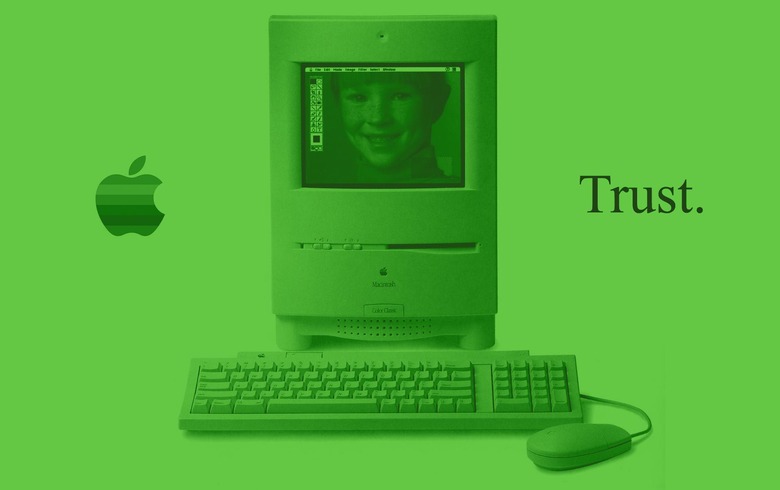The next iPhone wont "think different" like Android
The next iPhone will not be significantly different from the last. Of that you can be sure. If you're an Android smartphone fan, you've come to expect this. If you're an iPhone user, this is what you've come to rely on. We've had nearly a decade of fan battles between iOS and Android, all leading toward the place we're at right now – smartphone singularity. Every smartphone that wants to try for Apple's spot with the iPhone looks the same and acts the same – neither Apple nor Google wants to change this. This relationship is based on trust.
Earlier today an article was published on ZDNet by writer Jason Perlow entitled "Here comes the iPhone apocalypse and the end of Apple as we know it." He speaks of the Mac, once the majority of Apple's income, now just a single-digit percentage of the company's income.
The Mac represents the lack of change I'm speaking about and expecting in the next iPhone.
My family's first home computer was an Apple computer. We used it for fun – basic painting and very simple games.
Once I found that all the great video games were being released for Windows, I bought myself a PC. I played games on this PC for years, but the computer never felt like home.

I knew how to use the computer well enough, and I appreciated the large amount of software I had access to, but the next opportunity I had to buy myself a Mac, I did it. The Mac was easier to use – I was used to the basic tenants of the operating system and I found that, even with each successive OS update from Apple, the basics remained the same.
The next time I need to buy another laptop, I'm going to buy another MacBook – and I don't want it to be significantly different from the one I have right now. I trust this piece of equipment.
The only thing I want in a new model is the ability to keep up with the software that'll inevitably change each successive year.

The iPhone is the same.
Users like the idea that they've got a device that they know how to use, and one they can rely on. An iPhone user isn't often someone easily swayed by the idea that one feature or the other in a non-Apple phone will be better than their device.
SEE: Android Update: What's the point?
Why?
Because Apple has built a relationship with users based on trust. They can trust that the user will remain an Apple user because they've created a device where they can feel at home. They can feel safe. Apple doesn't make big changes in their iPhone line from year to year.
Apple will not make (and has not made) significant changes to the iPhone any time soon. They do not need to.
Google, meanwhile, encourages Android device-makers to differentiate. Make something new, innovative, exciting!
This attitude is important, too – not every user prioritizes absolute trust in their smartphone's manufacturer over every other feature in said phone.

Motorola makes some pretty awesome inexpensive phones. LG is leading the charge with a plug-and-play accessories device – that's just about as far from Apple's "this is just a more powerful version of the phone you had last year" attitude with the iPhone as you can get. Samsung has gone so far as to team up with Oculus to make their smartphone a VR conduit – that was very much unexpected when the company first showed off the Gear VR.
So as Android device manufacturers – for the most part – aim to sell you phones based on their ability to surprise and titillate with new features, Apple will continue to trust that you want their trust. And you can trust that Apple will deliver a new set of iPhones this year that'll look, feel, and act very similar to the ones that came before them.
Now is the time at which Apple will be very seriously considering moving on to the next big thing.
Within the next several years, they'll be there.
Or, at least, they'd better be.

Have a peek at the timeline below to see iPhone 7 leaks to see what may be another one just like the other one.
